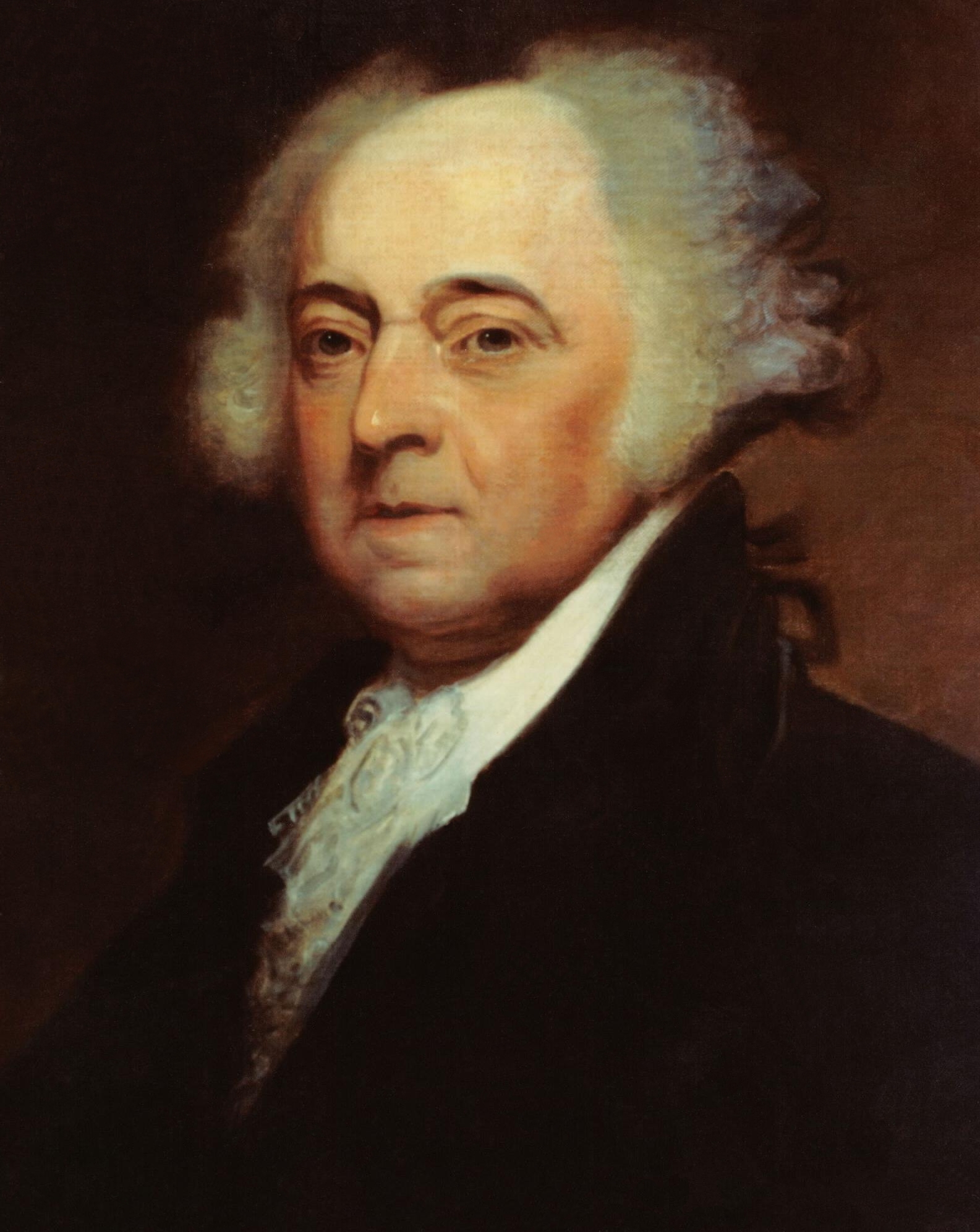"Must a man possess a Library equal to that mentioned by St. Luke which he says the whole world would not contain and live to the age of Methusalah before he could read half of it before he can work out his salvation with fear and trembling? I find in the old Testament and especially the new internal evidence of a philosophy a morality and a Polity which my head and heart embraces for its equity humanity and benevolence. This is my religion."- John Adams (1735-1826), Founding Father and second president of the United States, letter to Adrian van der Kamp, January 23, 1813, quoted in The Founders on Religion: A Book of Quotations, edited by James H. Hutson (Princeton: 2005), pg. 23.
A group blog to promote discussion, debate and insight into the history, particularly religious, of America's founding. Any observations, questions, or comments relating to the blog's theme are welcomed.
Sunday, February 6, 2011
John Adams on the Bible
Labels:
DeForrest's Posts
Subscribe to:
Post Comments (Atom)

4 comments:
I must say here that few if any in the Founding era gave a good goddam what John Adams thought or said after the Revolutionary period, when he was a mover & shaker.
You could look it up. Nobody quoted him, and his master monographs like
http://www.constitution.org/jadams/ja1_00.htm
were largely ignored.
I like him as an inquisitive mind of the Founding era more than the Founding era itself did; it found him annoying, which he was, and voted him out of the presidency as soon as possible, America's first one-term president.
[I do not address what Adams says here. He is alleged to be a "key" Founder. Feh. John Adams was the first Irrelevant Man, the GeorgeHWBush41 of his day. They couldn't wait to be rid of him.]
Tom,
We're going to disagree about Adams. Adams was remarkably influential during the Revolution. He was cheered when he returned from England, for example, and was the natural choice to be Washington's VP. He lost the election of 1800 in no small part not because the people were done with him, but because Alexander Hamilton was done with him, and tried to maneuver Pickering into the presidency. If the Federalist movement had held together, Adams would have been a two-termer.
As for Adams' later importance, the Adams-Jefferson correspondence is a vital window into the philosophy of the founding period. Russell Kirk referred to Adams as the "American Burke," and gave him pride of place in one of the most influential conservative books of the 20th century, The Conservative Mind. And let's not forget that Adams' broad policies were vindicated in the long run -- in both the Jefferson, Madison and Monroe administrations, and in the administration of his son, John Quincy Adams, who carried the Adams' banner through his own term as president and into the House of Representatives thereafter.
One more thing. Adams is considered the father of the American navy. His doctrine of "wooden walls" did more to secure this country's security and commerce than anything any other president has done.
Ok, and one more one thing -- the key thing about Adams at the end of is one term in office is that HE WENT HOME. This was the first time in modern history that a chief magistrate lost and election and WENT HOME. Every other king, president, consul, etc., clung to power until death or revolution stripped it from his hand. Adams WENT HOME. In addition to Washington establishing the custom that president's only serve 2 terms, Adams reinforced America as a polity with the rule of law, instead of a banana republic. That alone puts in him the pantheon of statesmen in human history.
Oh, and there is no evidence that Adams ever raped a slave, either.
I agree. The best thing about John Adams is he WENT HOME.
And for the record, Jefferson is probably my least favorite Founder. Except Gerry and Pickering, who were the Founders' least favorite Founders.
Glad to hear we are united in our opinion of Jefferson! Not my favorite founder, either. Nor am I a fan of Pickering, Gerry, or a host of others (I think Madison is overrated). My favorite founders are those in the "lesser tiers" -- Patrick Henry, Fisher Ames, Benjamin Rush, John Jay, John Dickenson. I also like the figures who were active when the founders were moving off the stage (like John Randolph of Roanoke). I have to confess a soft spot of Adams, not because of profundity of his thought, but because he is something of an historical underdog. The first president to lose re-election!
Adams problem was an inability to perceive his situation -- in regard to his own status, the nature of American republicanism, and the fact that people around him (Jefferson, Hamilton) were scheming against him.
Post a Comment